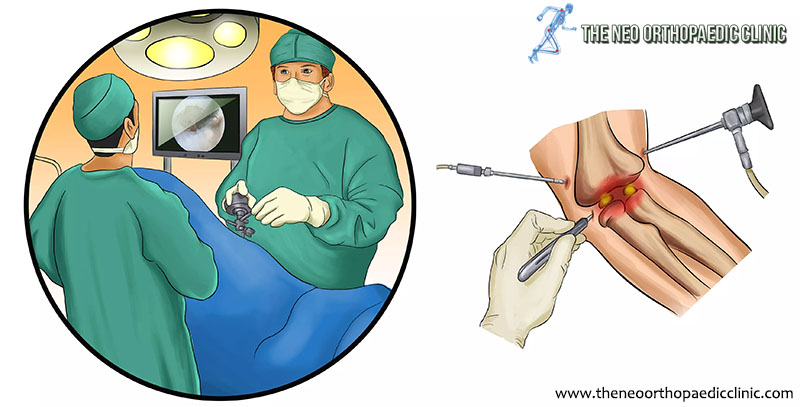What is arthroscopy?
Arthroscopy in Delhi is a minimally invasive procedure used for the diagnosis and treatment of conditions that affect the joints. The doctor can view the internal structures of the ligaments directly by using an instrument called an arthroscope.
Orthopaedic surgeon in Delhi uses the arthroscope to diagnose and treat joint problems. An arthroscope is a small, tube-shaped instrument used to view the inside of a joint.
It consists of a lens system, a small video camera, and a viewing light. The camera is connected to a monitoring system that allows the doctor to view a joint through a very small incision. The arthroscope is often used in conjunction with other instruments that are inserted through another incision.
The joint most often examined by arthroscopy is the knee. However, arthroscopy can be used to examine other joints, including the following:
- Shoulder
- Elbow
- Ankle
- Hips
- Wrist
knee anatomy
Joints are the areas where bones meet. Most joints are mobile and allow the bones to move. Basically, the knee is made up of two long leg bones joined by muscles, ligaments, and tendons. Each end of the bone is covered by a layer of cartilage that absorbs shock and protects the knee.
There are two groups of muscles involved in the knee, including the quadriceps muscles (located in the front of the thighs), which straighten the legs, and the hamstring muscles (located in the back of the thighs), They bend the leg at the knee level.
Tendons are tough cords of tissue that connect muscles to bones. Ligaments are elastic bands of tissue that connect bones to each other. Some ligaments in the knee provide stability and protection for the joints, while other ligaments limit the back and forth movement of the tibia (shinbone).
The knee is made up of:
- Tibia. Shin bone or largest bone of the lower leg.
- Femur. Thigh bone or upper leg bone.
- Ball joint. Knee bone.
- Cartilage. A type of tissue that covers the surface of a bone at the joint. Cartilage helps reduce friction from movement within a joint.
- synovial membrane. Tissue that lines the joint and seals it into a joint capsule. The synovial membrane secretes synovial fluid (a clear, sticky fluid) around the joint to lubricate it.
- Ligament. A type of tough, elastic connective tissue that surrounds the joint to provide support and limit movement.
- Tendon. A type of tough connective tissue that connects muscles and bones and helps control joint movement.
- Menisci. Curved part of the cartilage of the knees and other joints that acts as a shock absorber.
Reasons to perform the procedure
An arthroscopic procedure may be used by orthopaedic in Delhi to diagnose and help treat the following conditions:
- Swelling of the knee, shoulder, elbow, wrist, or ankle
- Injuries, such as rotator cuff tendon tears or shoulder impingement syndrome (compression of the shoulder tendons caused by excessive squeezing and rubbing of the rotator cuff and scapula)
- Cartilage damage, such as tears, injuries, or wear
- Ligament tears with knee instability
- tendon damage
- Carpal tunnel syndrome in the wrist
- Loose bones and/or cartilage, particularly in the knee, shoulder, elbow, ankle, wrist, or hip
Corrective surgery or biopsy may be done using arthroscopy. For example, torn ligaments can be repaired or rebuilt. Arthroscopic surgery in Delhi may eliminate the need for an open surgical procedure.
Your orthopaedic doctor in Delhi may recommend an arthroscopy for other reasons.



No comments:
Post a Comment